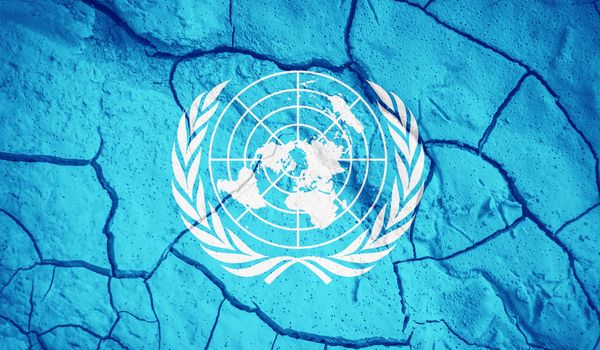Eighty years ago, the United Nations was established with the signing of the UN Charter. As the preamble states, its purpose was “to save succeeding generations from the scourge of war.” Today, eight decades later, it must be acknowledged that this goal remains unfulfilled. Since the end of the Second World War, the world has not experienced such a high number of armed conflicts as it does now.
Yet, this sobering reality should not eclipse the significant achievements the UN has made over the years. In particular, the advancement of gender equality stands out as a notable success. Key milestones include the adoption of the Convention on the Elimination of All Forms of Discrimination against Women (CEDAW) and the Beijing Platform for Action from the 1995 UN Women’s Conference. Building on these foundations, the UN Security Council adopted Resolution 1325 on Women, Peace and Security in 2000—a landmark resolution whose 25th anniversary is being marked this year.
Despite these accomplishments, the United Nations is arguably facing one of the most serious crises since its founding. A growing trend of hegemonic authoritarianism is challenging the principles of multilateralism, shifting the focus from cooperation and compromise to the dominance of power. A development that is also reflected in the massive cuts made by some Member States to the UN budget.
At the same time, there is mounting pressure from the Global South for comprehensive reform of the UN system—especially the Security Council, which continues to reflect the geopolitical realities of the Cold War rather than those of today.
In response to these challenges, the UN convened the Summit of the Future in September 2024, culminating in the adoption of the Pact for the Future. This development offers a glimmer of hope and a potential foundation for meaningful reform.
These issues will be explored further in the upcoming panel discussion, which also carries special relevance given Austria’s current candidacy for a non-permanent seat on the UN Security Council.
In light of the growing number of armed conflicts and the global trend toward militarisation, the Women, Peace and Security Agenda remains more relevant than ever. But where do we stand on its implementation? And how must it evolve to effectively address today’s complex and volatile conflict landscape?
Podium
Margot Wallström
served as a member of the Swedish Parliament for six years.In 1988 she was appointed Government Minister for the first time and she has since held different portfolios like social affairs and culture before becoming Minister for Foreign Affairs in 2014 to 2019. During her time as Foreign Minister, Sweden became the first country to introduce a feminist foreign policy and also held a non-permanent seat on the UN Security Council.
Margot Wallström worked for the EU for 10 years, as Environment Commissioner 1999-2005 and Vice-President of the EU Commission 2005-2010. Wallström was the first UN Special Representative on Conflict related sexual violence, an office she held 2010-2012. From 2012-2014 Wallström chaired the Board of Lund University, Sweden. She has recieved several honorary doctorate degrees.
Rosebell Kagumire
is a Pan-African feminist writer, thinker and activist with expertise in media, feminist movements, human rights, peace and conflict. Rosebell is a PhD candidate in Digital Media at the University of Porto. As the Curator and Editor of African Feminism, an online platform amplifying feminist voices across Africa, she is a leading voice on justice and equality on the African continent. She is a columnist for New Internationalist Magazine and a founding member of the African Feminist Collective on Feminist Informed Policies. Rosebell also serves on the Editorial Board of Minority Africa, an online platform that reports on the rights of minority groups in Africa. She has contributed to the upcoming book Rising for Palestine: Africans in Solidarity for Decolonisation and Liberation, bringing together critical contributions from Palestinian and African scholars, intellectuals and activists.
Alexander Kmentt
has been Head of the Department for Disarmament, Arms Control and Non-Proliferation at the Austrian Foreign Ministry since 2021, having already held this position from 2011 to 2016.
Over the past twenty years, he has been intensively involved in disarmament, arms control and non-proliferation policy, not only as head of the Disarmament Department, but also as Austria's Deputy Permanent Representative to the Conference on Disarmament in Geneva and as Chief of Staff to the Executive Secretary of the Comprehensive Nuclear-Test-Ban Treaty Organisation (CTBTO).
Ambassador Kmentt is one of the architects of the Treaty on the Prohibition of Nuclear Weapons (TPNW). For this, he was named ‘Disarmament Person of the Year 2014’ by the US-based Arms Control Association. After the treaty entered into force under international law in 2021, he was the President of the 1st Conference of States Parties, which took place in Vienna in June 2022.
From December 2025, Ambassador Kmentt will serve as Austria's Permanent Representative to the United Nations in Geneva.n.
Corinna Milborn
has been working as a journalist and author since 2003. In 2007, she received the Bruno Kreisky Recognition Award for political books for her book Gestürmte Festung Europa (Stormed Fortress Europe). From 2007 to 2012, she hosted Club 2 on ORF, and since October 2012 she has been with Puls 4, serving as information director since May 2013. In April 2017, she was awarded the Robert Hochner Prize.
Corinna Milborn is also ‘Journalist of the Year’ 2017.
She studied political science, history and development policy in Vienna, Granada and Guatemala.

